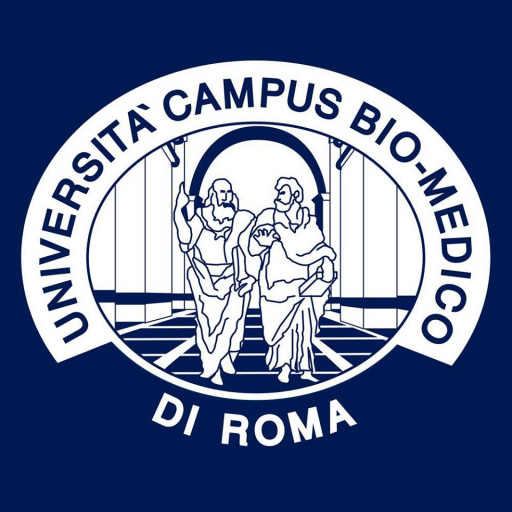Photos of university / #universitaetbern
The Bachelor's degree in Biomedical Engineering at the University of Bern offers students a comprehensive education at the intersection of engineering, biology, and medicine. This interdisciplinary program is designed to prepare graduates for innovative contributions to healthcare technology and medical device development. Throughout the course of study, students acquire fundamental knowledge in engineering principles, biology, physiology, and computer science, enabling them to design and improve medical instruments, diagnostic tools, and therapeutic devices. The program emphasizes both theoretical understanding and practical skills, incorporating laboratory work, project-based learning, and internships to facilitate real-world applications. Students will explore areas such as medical imaging, biomaterials, biomechanics, signal processing, and biomedical instrumentation. The curriculum is structured to foster critical thinking, problem-solving abilities, and an understanding of ethical considerations in medical technology. Collaboration with healthcare professionals and industry partners provides valuable insights into clinical needs and technological innovations. Graduates of the Biomedical Engineering program at the University of Bern are equipped to pursue careers in research and development, medical technology industry, clinical engineering, and healthcare innovation. The program also provides a strong foundation for those considering further studies at the master's or doctoral levels. Dedicated faculty members with expertise in engineering, medicine, and life sciences mentor students to ensure a high-quality educational experience. The university’s state-of-the-art laboratories and research facilities offer an ideal environment for hands-on experimentation and project work. Graduates leave with the skills needed to contribute meaningfully to advancements in medical technology and to improve patient care through innovative engineering solutions. The program's international orientation and emphasis on interdisciplinary collaboration prepare students for global challenges in healthcare engineering. By combining technical expertise, biomedical knowledge, and a commitment to improving health outcomes, the Biomedical Engineering program at the University of Bern aims to develop the next generation of engineers and researchers dedicated to innovation in medicine.
- Applied Biomaterials
- Basics in Physiology for Biomedical Engineering
- Basics of Applied Molecular Biology
- Biological Principles of Human Medicine
- (Bio)Materials
- Biomedical Acoustics
- Biomedical Instrumentation
- Biomedical Laser Applications
- Biomedical Sensors
- Biomedical Signal Processing and Analysis
- BioMicrofluidics
- C++ Programming I
- C++ Programming II
- Cardiovascular Technology
- Clinical Epidemiology and Health Technology Assessment
- Computer Assisted Surgery
- Clinical Applications of Image-Guided Therapy
- Computer Graphics
- Computer Vision
- Continuum Mechanics
- Cutting Edge Microscopy
- Design of Biomechanical Systems
- Dynamical Models: Analysis, Conception and Simulation
- Engineering Mechanics
- Ethics in Biomedical Engineering
- Finite Element Analysis I
- Finite Element Analysis II
- Fluid Mechanics
- Functional Anatomy of the Locomotor Apparatus
- Image-Guided Therapy Lab
- Innovation Management
- Intelligent Implants and Surgical Instruments
- Introduction to Digital Logic
- Introduction to Medical Statistics
- Introduction to Signal and Image Processing
- Introductory Anatomy and Histology for Biomedical Engineers
- Low Power Microelectronics
- Machine Learning
- Measurement Technologies in Biomechanics
- Medical Image Analysis
- Medical Image Analysis Lab
- Medical Robotics
- Microsystems Engineering
- Molecular and Cellular Biology Practical
- Numerical Methods
- Ophthalmic Technologies
- Osteology
- Principles of Medical Imaging
- Programming of Microcontrollers
- Regenerative Dentistry for Biomedical Engineering
- Regulatory Affairs and Patents
- Rehabilitation Technology
- Scientific Writing in Biomedical Engineering
- Technology and Diabetes Management
- Tissue Biomechanics
- Tissue Biomechanics Lab
- Tissue Engineering
- Tissue Engineering - Practical Course
- Wireless Communication for Medical Devices
Individual academic requirements
The following academic qualifications are required for admission to the specialized master’s degree program in Biomedical Engineering (mono):
Bachelor's degree from a Swiss university or a Swiss university of applied sciences in one of the following branches of studies:
| a | Electrical Engineering | |
| b | Computer Science | |
| c | Mechanical Engineering | |
| d | Microtechnology | |
| e | Physics | |
| f | Computational Science | |
| g | A comparable field of study |
Applications supported by a degree not listed under points a - e or with an international degree are also possible. In cases such as these, admission is based on individual achievement, taking into account your existing knowledge and achievements.
Additional attainments of up to 30 ECTS credits may be required which must be fulfilled in order to complete the master's degree program. The ECTS credits will be listed separately in the diploma supplement as extracurricular attainments.
If you are applying with an international degree, you must also take a GRE test.
The degree used for assessment purposes may not be more than five years old. Exceptions are possible where justified.
- Curriculum vitae in table form with uninterrupted chronology of your education and academic studies up to the present incl. up-to-date passport photo (45 mm high by 35 mm wide)
- Motivation letter (incl. family name, given name, full address, e-mail address, date and signature and – if you have one – mobile phone number)
- If you are holding a bachelor degree's: Originally certified photocopies of your degree (e.g. diploma and diploma supplement). The correspondence of the photocopy to the original must be officially certified.
- Originals (stamped and signed) or originally certified photocopies of all official proofs of your achievements (transcripts) with grades/scores
- Grading system of the degree issuing university, if the grading system is different from ours. Our scale goes from 1 to 6, with 6 being excellent and grades below 4 being unsatisfactory.
- Brief description of the content/learning objectives of the different courses/lectures (annotated course catalog or module handbook)
- Originally certified translations of the original documents (e.g. diploma, diploma supplement, bachelor's or master's degree, transcripts of diploma records), if these are not written in German, English, French or Italian. These translations have to be inseparably connected with the originally certified photocopies of the original documents.
- GRE General Test score (only the results of the test part “Quantitative Reasoning” are relevant for admission)
- Photocopy of your valid passport or identity card
- Application fee: CHF 105
Financing studies for the Biomedical Engineering Master's program at the University of Bern are designed to facilitate access to education through various funding options and financial support mechanisms. Students enrolled in this program can benefit from a combination of national and university-specific funding opportunities, scholarships, and financial aid programs aimed at reducing the economic burden associated with higher education.
The University of Bern offers several scholarships for international and Swiss students, which may be available based on academic excellence, financial need, or specific eligibility criteria related to nationality or field of study. Prospective students are encouraged to explore the university’s scholarship database and application procedures well in advance of the program start date. Additionally, students can apply for externally funded scholarships from government agencies, private organizations, or international foundations that support students pursuing postgraduate education in engineering and health sciences.
Students may also consider part-time employment opportunities either on campus or within the local Bern community to finance their studies. The university provides support services, including career counseling and job placement assistance, to help students find suitable employment. It is important for students to plan their finances carefully, considering tuition fees, living expenses, health insurance, study materials, and other personal costs.
Tuition fees at the University of Bern are generally moderate compared to other Swiss universities, and fee waivers or reductions may be available for certain categories of students. The university also offers financial guidance and advising for international students, including information about cost-of-living, banking, and insurance requirements in Switzerland.
Students from European Union countries may have access to simplified visa and residence procedures, which can facilitate additional support options. International students from non-EU countries should budget carefully and explore additional funding sources, as well as residence permit regulations that may impact their financial planning.
In summary, financing studies at the University of Bern’s Biomedical Engineering Master’s program involves a mix of scholarships, external funding, employment, and careful financial planning. The university actively supports students in identifying and applying for various financial aid options to enable successful completion of their studies without undue financial hardship.
The Bachelor’s degree program in Biomedical Engineering at the University of Bern offers students a comprehensive foundation in the principles of engineering, biology, and medicine. This interdisciplinary course aims to prepare graduates for a diverse range of careers in the healthcare industry, research, and technology development. The program emphasizes both theoretical knowledge and practical skills, with coursework designed to cover key areas such as medical device development, biomedical signal processing, biomaterials, imaging techniques, and systems biology. Students have the opportunity to participate in laboratory exercises, projects, and internships that provide real-world experience and foster innovation.
The curriculum is structured to ensure a solid understanding of fundamental engineering concepts, including mechanics, electronics, and programming, as well as biological sciences like physiology and molecular biology. This integrative approach equips students to analyze and solve complex problems related to healthcare technologies. The program also emphasizes the importance of ethical considerations, regulatory frameworks, and patient safety in the development and application of biomedical devices and procedures.
Students enrolled in the program benefit from access to modern laboratories and research facilities at the university, with opportunities to collaborate with faculty engaged in cutting-edge biomedical research. The university’s connections with hospitals, industry partners, and research institutions enable students to engage in internships and projects that enhance their practical skills and employability. Graduates of the program are prepared for careers in medical technology companies, research institutions, hospitals, or for further specialization through master's programs.
The program is tailored to adapt to the rapidly evolving landscape of biomedical innovation, encouraging lifelong learning and continuous professional development. It also fosters interdisciplinary teamwork and communication skills essential for successful collaboration in healthcare and technology sectors. The language of instruction is primarily in English, reflecting the international outlook of the program and the need for global collaboration in biomedical sciences and engineering. The duration of the bachelor’s program is typically three years, culminating in a Bachelor of Science degree, which provides a pathway to master's studies or entry into the workforce.
Throughout their studies, students are supported by dedicated academic advisors and mentoring programs aimed at guiding their educational and career development. The university also offers additional workshops, seminars, and networking events that connect students with professionals in the field. Overall, the Biomedical Engineering program at the University of Bern is designed to produce skilled, innovative, and ethically responsible engineers who are equipped to address the challenges and opportunities in modern medicine and healthcare technology.










